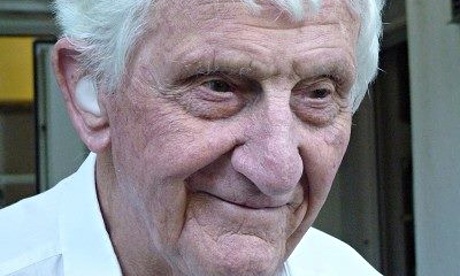
My friend Harry Haines, who has died aged 95, was a coalface worker, social worker and writer who was happy to be labelled the Miner Poet.
Born in Portsmouth, Harry was an aircraft engineer in the RAF during the second world war, serving in the Middle East and Italy. After the war he spent 20 years in the Leicestershire coalfield, working at Donisthorpe colliery and living in the pit village.
A keen reader from childhood, he began writing poetry in the 1950s, and admired Emily Dickinson. His poems were widely published in magazines including the New Statesman, Listener and New Yorker, and read on BBC radio. He documented working-class life, writing about important and often deeply moving experiences with great skill. Shortly before he died in 1959, Edwin Muir, the poet, novelist and translator, said in a letter to Harry: “I think you are the best lyric poet writing today.”
Harry was celebrated as the Pit Poet in a National Coal Board newsreel, Mining Review, in 1967. With support from the board and the National Union of Mineworkers, he was able to study at Leicester University, where he met Vera Forster, a refugee from the Hungarian uprising. In time, the couple moved to Gosport, where both spent many years in public service. Harry, who had qualified as a social worker, became a senior youth worker. Vera died in 2012.
One of the activities for the young people in Harry’s charge was sailing, and Harry became a keen sailor, and a member of the Hardway sailing club in Gosport. Always a socialist, in his 80s he left the Labour party and joined the Green party, which is how I came to know him.
His work still has the power to move, and I have seen young people in tears at his readings. His poem The Door, written after the death of his daughter Lyndsay in a road accident, touched many. He appeared at the Havant literary festival in October 2014, where he held an audience with his work, read by himself and his friends. He was a regular performer at literary events in Hampshire, and his last poetry appearance was at the Ashcroft arts centre in Fareham, 10 days before he died.
Harry is survived by Mark, Judith and Tracey, three of the four children from his marriage to Winnie (nee Bedford), which ended in divorce.

